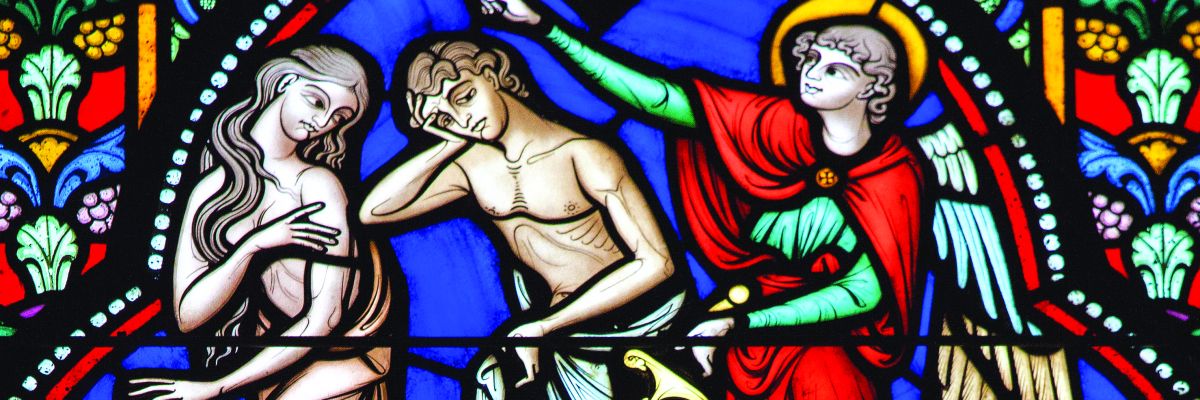
There is barely a teaching of Christianity more misunderstood than original sin. This is unsurprising, since this teaching is at the foundation of what we believe about the coming of Christ. In short, there would be no Savior, no Christ, no Christianity without the reality of original sin.
Even so, this teaching is so offensive to modern ears that teachers and preachers are constantly trying to come to some version of the doctrine that is acceptable to current sensibilities. The editors and authors of the Catechism of the Catholic Church tried hard to come up with some way of explaining this teaching that would take into account modern reservations, but they were unable to. And so they expounded the teaching there pretty much in the same terms as it was classically and authoritatively expounded by St. Augustine of Hippo and the later councils of Orange in France, as well as the Council of Trent, which, of course, has the clearest and most concise teaching on the matter.
“O certe necessarium Adae peccatum, quod Christi morte deletum est, O felix culpa quae talem et tantum meruit habere redemptorem.” “O surely necessary sin of Adam which was wiped out by the death of Christ, O happy fault, which merited such and so great a Redeemer.” This is what the church sings at every Easter in the first proclamation of the glory of the Resurrection at the Vigil.
St. Thomas Aquinas, following St. Augustine and the apostolic authority of St. Paul, teaches that the principal motive and effect of Christ’s suffering on the cross, indeed of his Incarnation for our salvation, was precisely the removal of the obstacle of original sin, and then only by extension the removal of personal sin.
What is this distinction? What is the difference between original and personal (called sometimes “actual”) sin? It is a very simple and profound matter. We are a kind, a race, a species, all connected by a common origin. Thus, the original gifts of God for our happiness and salvation were given to our first parents, the original progenitors of the human race as a trust, and inheritance, to be maintained for them and their inheritance. As with any inheritance, if the parents squander or lose it, then they lose it not only for themselves but also for their children. This simple fact of human life applied in the spiritual realm just as it applies in the material.
When our first parents sinned against God, they lost what are called “the gifts of original justice” along with the gift of habitual grace. They lost the gift of immortality and so became subject to bodily death and illness. They lost the gift of emotional integrity and so became subject of unruly feelings or emotions. They lost the gift of knowledge and so became subject to ignorance. This meant that human beings would have to deal with the fear of death, with lust, laziness and stupidity, and that pretty much sums up the struggles of this earthly life.
But all these gifts were lost because of the loss of the greatest of gifts: namely, divine grace whereby we became sons and daughters of God and sharers in his divine nature. This is the principal and most essential of the original gifts, since without it we cannot reach the happiness of heaven, no matter if we are immortal, or calm, or intelligent. (The demons who hate God and who have no grace are still deathless, passionless, and very clever, so we see how all-important the gift of grace is compared to the other gifts we lost.)
It was to restore the gift of grace, a share in divine life, that the Savior died for us. This first grace is the one which opens the door to all the others, and gives us the hope of being virtuous, and wise, and immortal. For this he instituted the holy sacraments and the work of his Church. So let us praise him for his goodness that he took our nature to himself and underwent death to save us from the effects of original sin!



